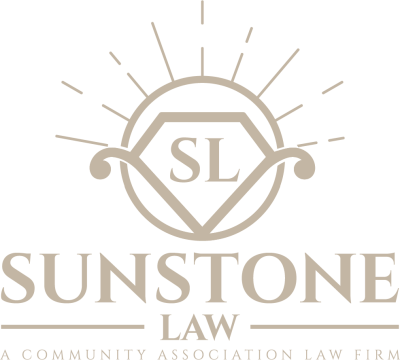education
articles
How Does The Collection/Foreclosure Process Work For Florida Community Associations?
A Florida Community Association such as a condo, HOA, co-op, or a deeded-interest timeshare generally has the right take legal action against owners who have failed to pay their assessments. In nearly all cases, unpaid assessments including late fees, interest, and legal fees, are secured by the property itself which can give the association the right to place a lien on the property and even foreclose on it. Usually, an association’s lien is only second to a first mortgage.
The general process is 1) collection attempt, 2) intent to lien letter, 3) lien, 4) intent to foreclose letter, and 5) foreclosure suit. Each stage in the process tends to add more fees and costs, especially once attorneys get involved.
If the case proceeds all the way to foreclosure, the property can be sold by the court and the proceeds used to pay off the amounts due to the association. If the sales proceeds fall short, then the association may be entitled to a deficiency judgement for the difference. Depending on circumstances, a deficiency judgement can become a lien against the owner’s other real estate properties or can be used to garnish the owner’s personal property, assets, or wages.
Does Florida Statute Take Precedence Over Your Governing Documents?
We are often taught that Florida Law takes precedence over your governing documents. While this is most often true, it is not always true. It depends on how your governing documents were written.
Typically, an HOA declaration will incorporate Florida Statute 720, a condo declaration will incorporate Florida Statute 718, a timeshare will incorporate Florida Statute 721, and so forth. That law, as it existed when the declaration was recorded,was essentially written into the declaration.
What if the law is later changed?
If your declaration incorporates the statute with language such as “as amended from time to time” then every time the law changes, it’s like you recorded an amendment to your declaration. The new law applies. Without language to that effect, future changes to the law may or may not apply depending on whether those changes are procedural or substantive. Procedural changes may apply even without the “as amended” language, substantive changes may not.


Office Hours
Sunstone Law, P.A. is available for consultation by appointment only in Brevard, Orange, Osceola, and Volusia Counties.

Contact Info
301 Mission Drive, Suite 188
New Smyrna Beach, FL 32170-0188
(571) 888-3410
A portion of this Firm’s business involves the collection of debts. This is an attempt to collect a debt. Any information obtained will be used for that purpose.
